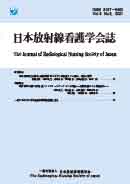The present study aimed to clarify whether lectures on radiation health effects contribute to the improvement of radiation risk perception and anxiety. And it was conducted a lecture to sophomore nursing students at a university where nuclear power plant is located. In order to confirm whether the lecture contributed to the improvement of radiation risk perception and anxiety, the participants were asked to indicate their risk perception of radiation health effects and anxiety about radiation before and after the lecture, and to write down the reasons for their choice. The results showed a significant improvement in the perception of radiation risk after the lecture compared to before the lecture for both delayed effects (24.3% vs. 94.7%, p<0.001) and hereditary effects on future generations (47.1% vs. 97.3%, p<0.001). The result of radiation anxiety was also same as risk perception (25.7% vs. 4.0%, p<0.001). We found that the lectures on the health effects of radiation contributed to the improvement of radiation risk perception and anxiety. In addition, it is highly likely that the participants were able to make decisions based on scientific evidence after attending the lectures, even if they had judged their risk perception based on the information they had seen and heard before the lectures.
View full abstract
